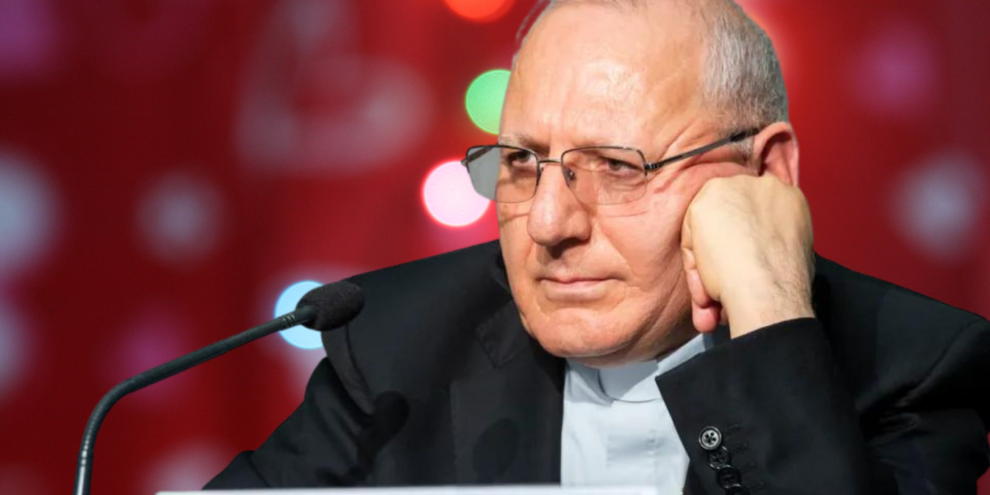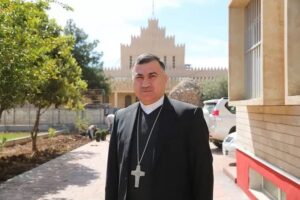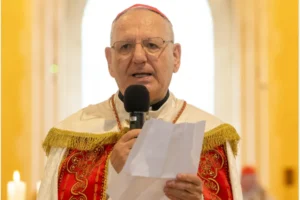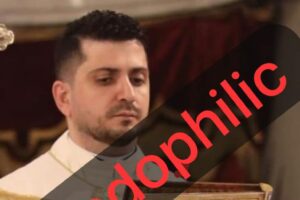Special Investigative Report for Alawla English
The Chaldean Catholic Church is witnessing significant internal tensions, with conflicts escalating between Patriarch Louis Sako and several bishops over issues related to church administration and relations with the Iraqi state. These tensions recently reached a peak following the boycott of the Chaldean Church Synod last July by five bishops, led by the Archbishop of Erbil, Bashar Warda, reflecting a deeper leadership crisis within the church. This article aims to analyze the crisis, explore its causes, and assess its implications for the future of the Chaldean Church.
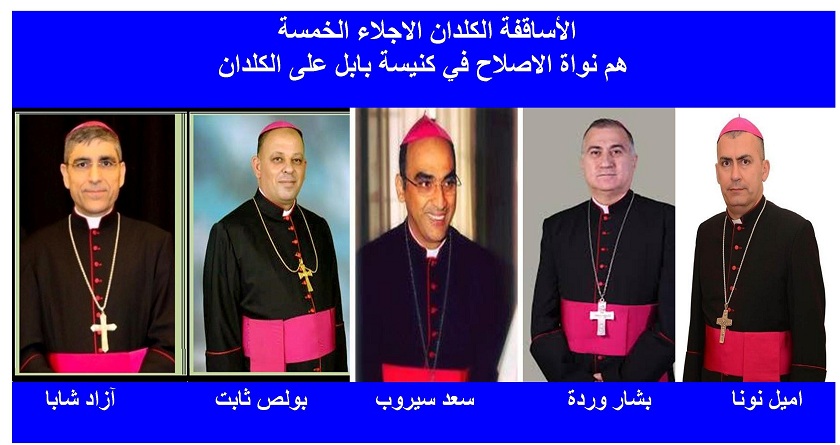
The Synod Boycott and Its Consequences In August 2024, Patriarch Sako issued a statement criticizing five Chaldean bishops for not attending the Episcopal Synod, where their presence is mandatory according to church law. In addition to boycotting the synod, Sako also condemned these bishops for withdrawing from the spiritual retreat and pulling their students from the Chaldean Seminary. Sako described these actions as a “serious breach” of church unity, demanding a public apology from the bishops by September 5.
The bishops refused to apologize, prompting Sako to threaten ecclesiastical sanctions, which could lead to excommunication. According to sources close to the dissenting bishops, their boycott was motivated by a feeling that Patriarch Sako was not serious about addressing the core issues facing the church and had been making unilateral decisions without consulting the other bishops, leading to a loss of trust in his leadership.
Sako’s Political Struggle One of the most sensitive points complicating this conflict is the ongoing dispute between Sako and Rayan Al-Kildani. According to Sako, this struggle led to the Iraqi President canceling a decree that recognized Sako as the leader of the Chaldean Church. In response to this decision, Sako spent several months in “voluntary exile” in the Kurdistan region. For his part, Al-Kildani denies any involvement in this dispute, expressing his willingness to sit down with Sako and resolve their differences.
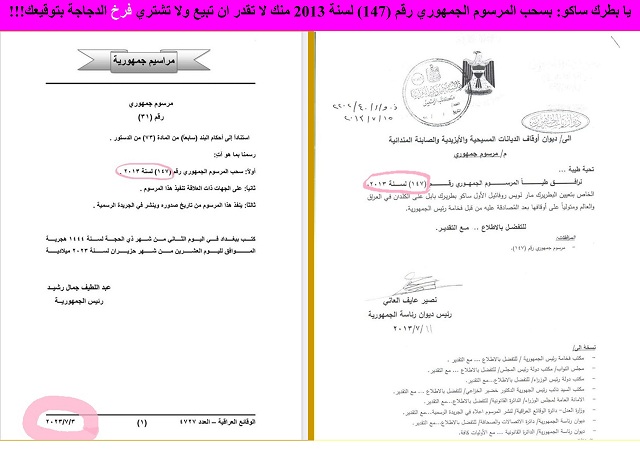
On another front, Patriarch Sako accuses Bashar Warda, the Archbishop of Erbil, of not supporting him in his battle against Al-Kildani. Sako claims he expected Warda to condemn the revocation of the decree and resist Al-Kildani’s attempts to seize church property. Warda, however, denies these allegations, arguing that Sako is dragging the church into unnecessary political conflicts.
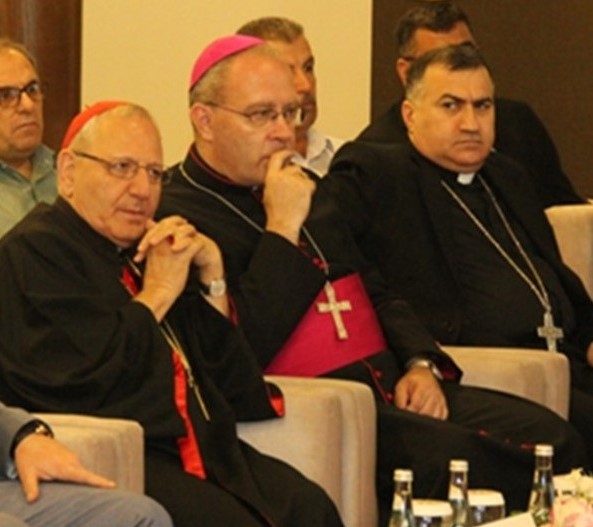
According to sources close to the Diocese of Erbil, as reported by *The Pillar*, the conflict between Sako and Al-Kildani is largely a struggle for political influence in Iraq, with Patriarch Sako attempting to use this dispute to strengthen his position, while the opposing bishops, particularly Bashar Warda, are trying to avoid becoming embroiled in political conflicts that could undermine the church’s stability.
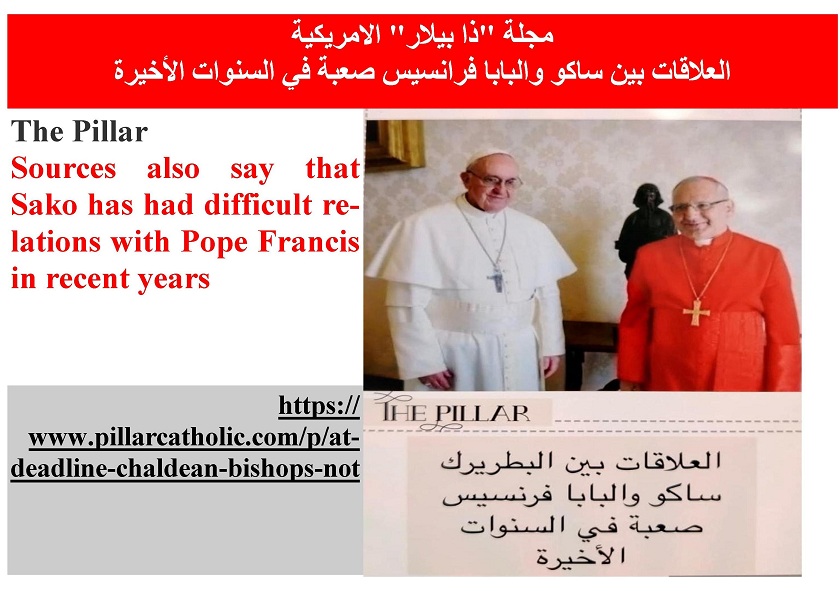
Sako’s Self-Promotion as the Vatican’s Representative in Iraq Among the criticisms directed at Patriarch Sako is his attempt to present himself as the Vatican’s representative and Pope Francis’s envoy in Iraq. This is seen by many bishops and observers as an effort to consolidate his influence over the Iraqi authorities. He has been accused of exaggerating this portrayal, positioning himself as a potential candidate for the papacy after Pope Francis, a prospect seen as unrealistic and lacking sufficient support within the Vatican.
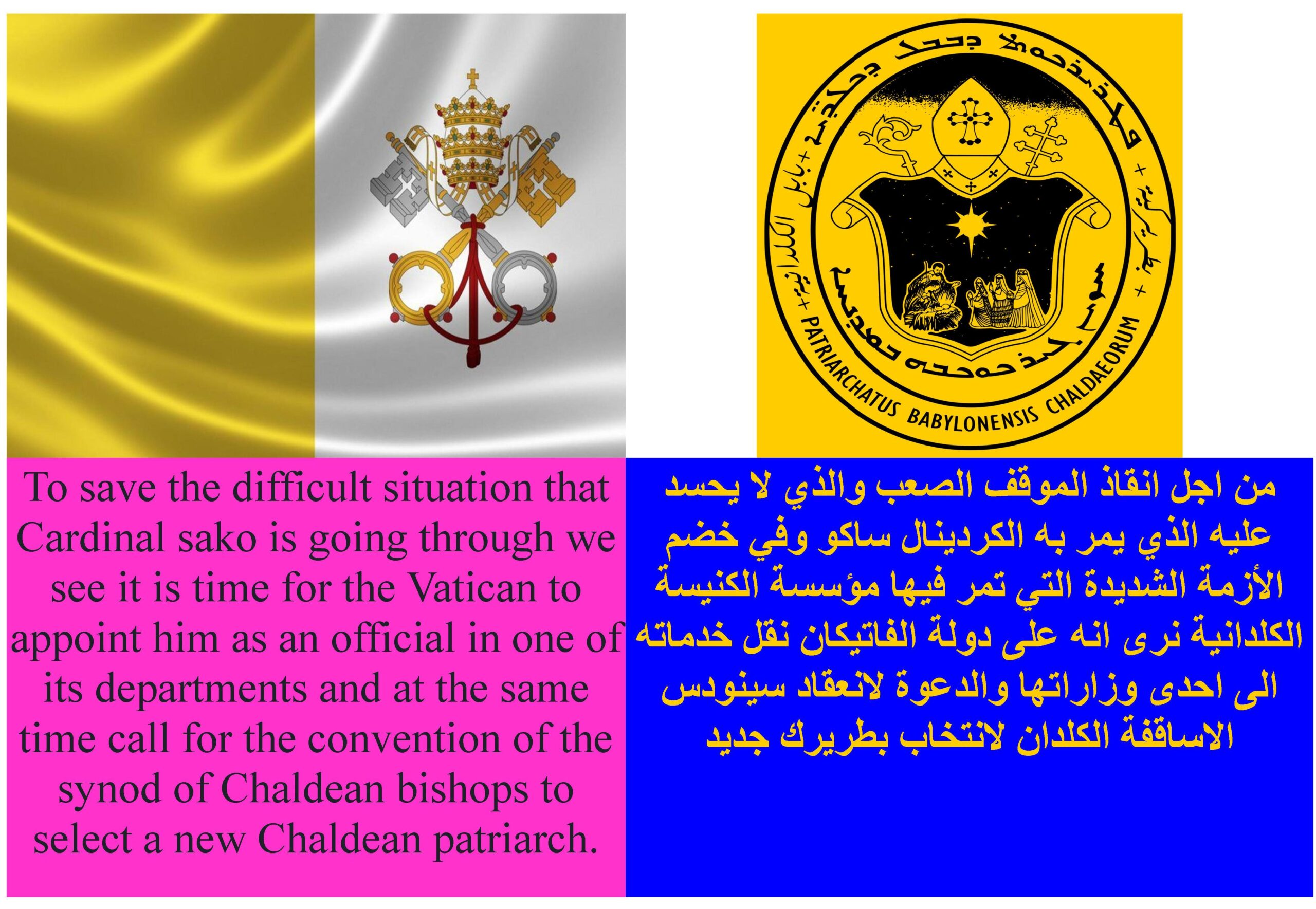
An analytical reading of news on this subject suggests that the Vatican is displeased with Sako, especially in light of his repeated media attacks on the Papal Nuncio in Iraq and a statement from the Vatican embassy noting that the revocation of Sako’s decree does not affect his position, and that the Vatican does not interfere in Iraqi affairs in this regard.
Furthermore, Sako has sought to portray himself as the representative of all Christians in Iraq, who belong to 14 different denominations. However, other Christian denominations have expressed dissatisfaction with this stance, asserting that Sako only represents the Chaldean Church. This discontent was highlighted in a formal statement issued last month on behalf of Iraq’s Christian communities, which made it clear that many of these denominations do not agree with Sako positioning himself as the unified voice of all Christians.

Exploiting Social Media and the Digital Conflict In addition to the political and religious conflict, the dispute between Patriarch Sako and his opponents has extended to social media platforms. Sako uses these platforms to clearly articulate his views and defend his positions. However, his critics have accused him of not only using the official Patriarchate’s page but also engaging in unofficial media campaigns via “electronic trolls.”
Opponents claim that Sako uses fake accounts and aliases on social media to defame his critics and launch attacks against them. It is believed that these campaigns are intended to tarnish the reputations of dissenting bishops and sway public opinion against them. These tactics, which Sako denies, have added a new dimension to the conflict, pushing the internal church strife into the digital realm and further complicating relationships within the Chaldean Church. Notably, the five bishops have remained largely silent on this front.
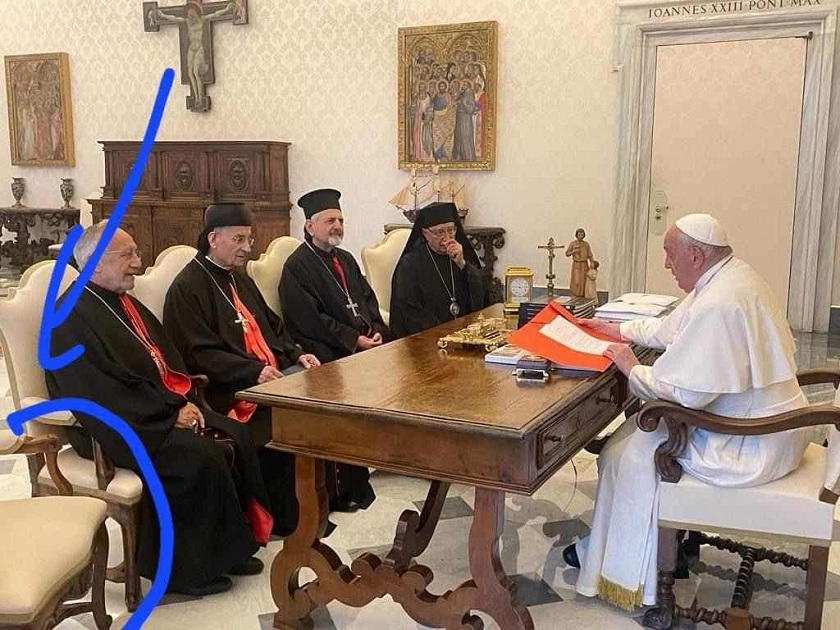
Sako’s Leadership and Stalled Reforms Patriarch Sako is also accused of adopting an authoritarian leadership style, making decisions without consulting the Vatican or other bishops. These criticisms have intensified following Sako’s suggestion to refer the dispute with the bishops to a higher ecclesiastical authority, possibly the Vatican, in an attempt to ease tensions. However, this move has been interpreted as an indirect acknowledgment of Sako’s lack of sufficient support within the Chaldean Church or from the Vatican.
Some sources suggest that Sako may be seeking direct support from Pope Francis himself, bypassing relevant church authorities such as the Congregation for the Oriental Churches. This reflects the complexity of the relationship between Sako and the Vatican. It remains uncertain whether the Vatican will intervene to resolve these disputes or the extent to which such intervention could impact church unity.
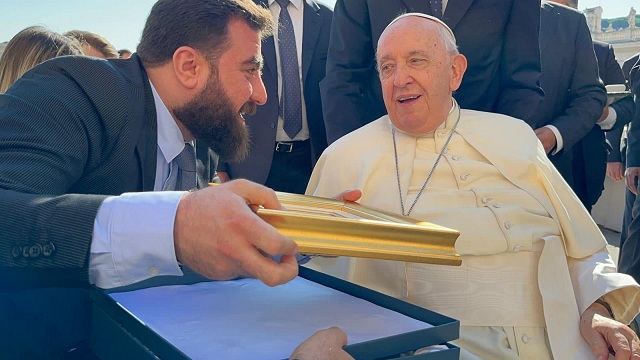
Conclusion Tensions within the Chaldean Church continue to escalate amid internal and external conflicts between Patriarch Louis Sako and the bishops, alongside complex political entanglements, such as the dispute with Rayan Al-Kildani. Sako is seeking to strengthen his influence by portraying himself as the Vatican’s representative and the voice of all Christians in Iraq, but these efforts have sparked discontent among many bishops and Christian communities.
Furthermore, the conflicts have spilled over onto social media, where Sako has been accused of using unofficial online campaigns to defame his critics, reflecting the deepening internal crisis. The Chaldean Church needs to reassess its leadership approach and foster internal dialogue to resolve these disputes and implement necessary reforms, steering clear of political entanglements that could lead to further divisions.
https://en.alawla.tv/860-escalating-conflicts-in-the-chaldean-church.html


